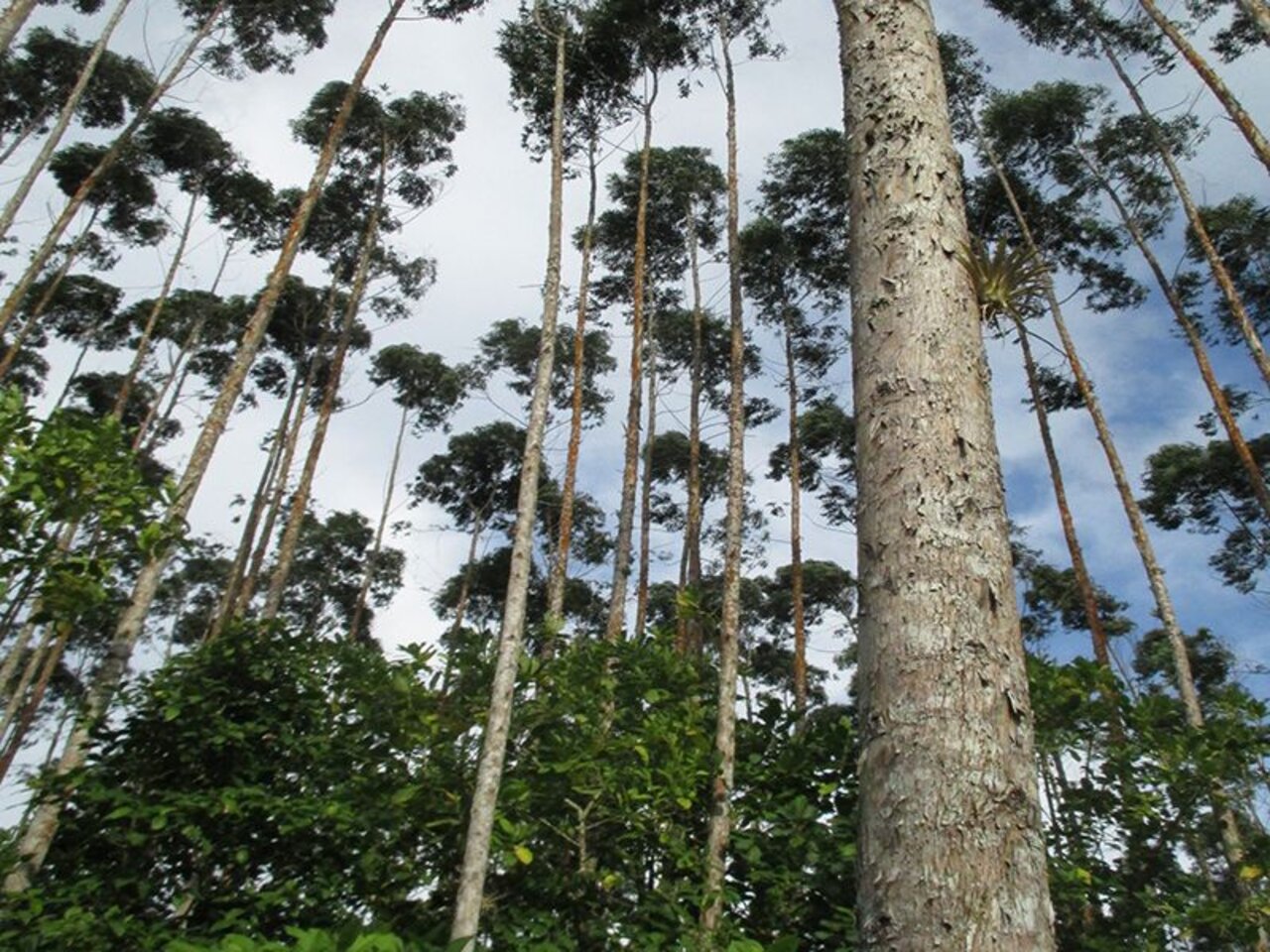Project
Sustainable Management of Forest Genetic Resources in Ecuador

Key criteria for sustainable management of forest genetic resources in the neotropics
Ambitious reforestation efforts are ongoing in Ecuador. Plantations proceed contuinuousely and mostly consist of Pinus and Eucalyptus. The silvicultural potential of native tree species diversity and socio-economic conditions for their sustainable management is analysed.
Background and Objective
Ecuador has one of the highest deforestation rates in South America. About 10% of the country is deforested land but has the potential to plant trees either for production or protection purposes. From the total area covered with forest plantations (167000 ha), 75% has been planted with two introduced tree genus Pinus and Eucalyptus (FAO, 2003). There are at least 750 native tree species with known silvicultural potential (INIAP, 2012). In recent years, ambitious re-forestation programmes have been designed by the government. These are, however slowly progressing and native species are hardly used. Knowledge on silvicultural and economic potential of such species is missing, as is seed and plant material.
If forest policy is to encourage multifunctional mixed forest plantations that contribute to the economic productivity on a national scale, as well as to conservation and sustainable use of local biodiversity, and protection of steep slopes or water bodies, the reforestation areas need to be increased and the use of economically and ecologically important native tree species needs to be studied and propagated.
Existing financial mechanisms need to be analysed in order to support the establishment of such forest ecosystems.
Approach
Cross planting experiments with Cedrela species in Ecuador in order to analyze
- variation among provenances originating from different ecosystems
- variation among species and genotypes
Governance study (Descriptions of political, legal and institutional framework in the forest sector)
Stakeholders analysis (Economic valorization of Cedrela
Risk analysis & suitability of species and provenances)
Data and Methods
Policy recommendations are generated in base of a multidisciplinary assessment
- Literature review of theoretical assumptions
- Laboratory tests
- Field experiments
- Governance analysis
Thünen-Contact

Involved Thünen-Partners
Alumni
- Claudia Dechamps (geb. Armijos-Ojeda)
Involved external Thünen-Partners
- INIAP: Instituto Nacional de Investigaciones Agropecuarias
(Quito, Ecuador) - KAAD: Katholischer Akademischer Ausländer Dienst
(Bonn, Deutschland) -
Technische Universität München
(München, Freising-Weihenstephan, Deutschland)
Duration
9.2014 - 12.2020
More Information
Project status:
finished
List of Publications
- 0
Armijos Ojeda C, Sigcha F, Fischer R, Günter S (2015) Manejo sustentable de recursos genéticos forestales : El rol de las organizaciones e instituciones en el Ecuador. 1 p
Duration
9.2014 - 12.2020
More Information
Project status:
finished








